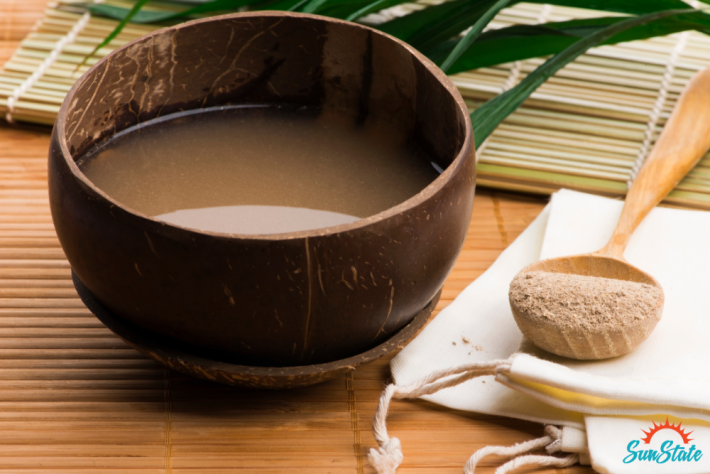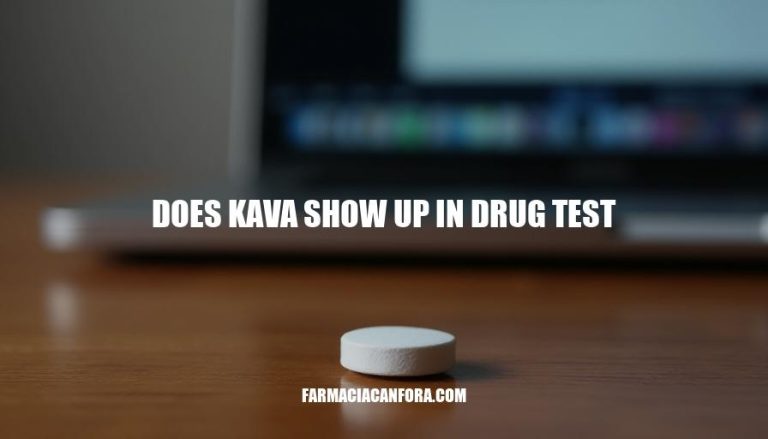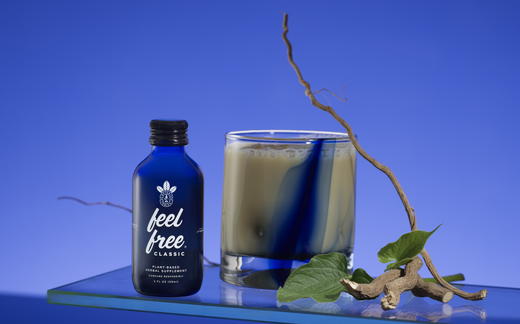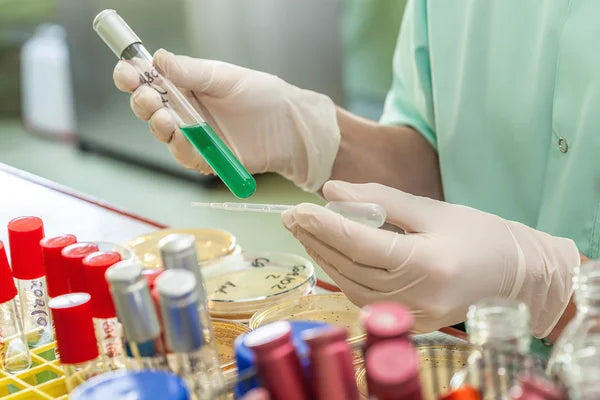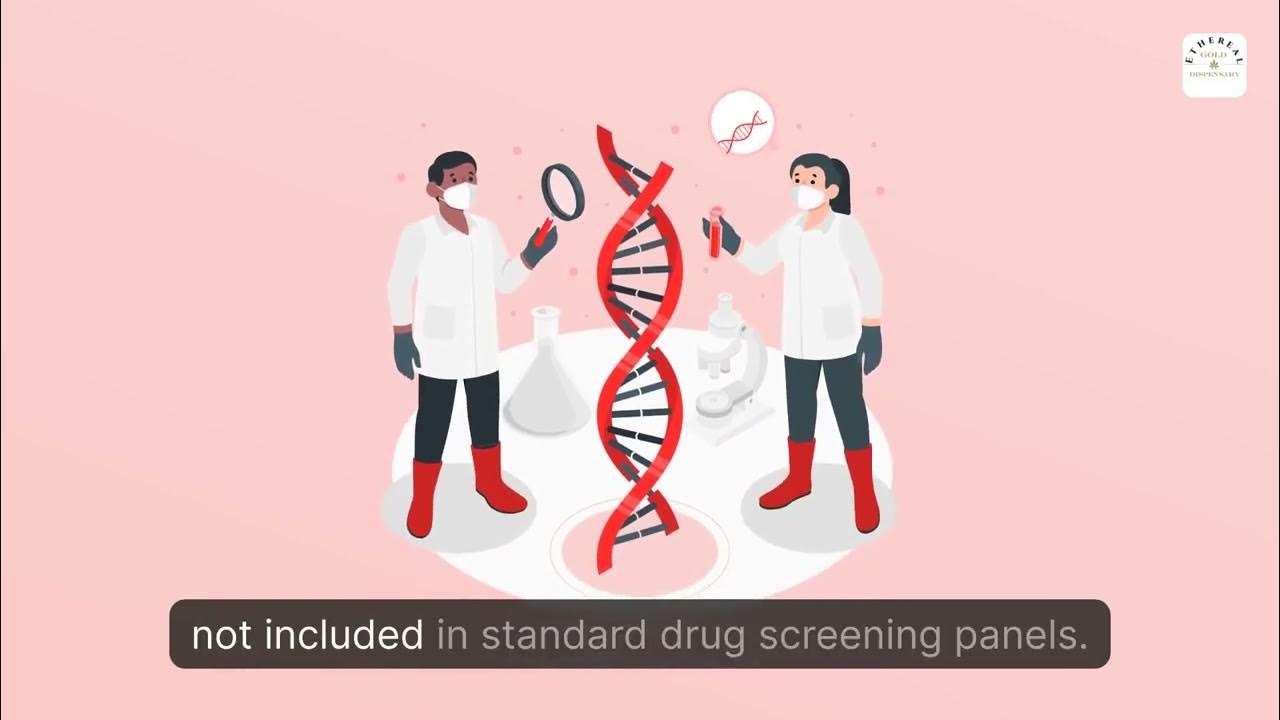Does Kava Show Up In Drug Test

The aroma hung heavy in the air, a blend of earthy roots and gentle sweetness. Laughter rippled through the gathering as friends shared stories, a communal bowl of kava passing from hand to hand. For centuries, this Pacific elixir has been a source of relaxation and connection. But in today's world of workplace screenings and drug tests, a question lingers: does kava show up?
At the heart of this query lies the intersection of traditional practices and modern regulations. This article delves into the complexities surrounding kava and drug testing, separating myth from reality. We'll explore the science behind kava's effects, its legal status, and the potential for it to trigger a positive result on standard drug screens.
The Kava Story: From Tradition to Modernity
Kava, scientifically known as Piper methysticum, boasts a rich history deeply intertwined with the cultures of the Pacific Islands. For generations, it has been more than just a beverage. It is a central part of social, ceremonial, and medicinal practices.
The roots of the kava plant are traditionally ground, mixed with water, and strained. The resulting liquid is consumed for its calming and anxiolytic properties.
Kava's active compounds, called kavalactones, interact with the brain's neurotransmitter systems. This interaction promotes relaxation without the cognitive impairment associated with alcohol or other sedatives.
Decoding Drug Tests: What Are They Looking For?
Drug tests are designed to detect the presence of specific substances or their metabolites in a person's system. These substances typically include illicit drugs like marijuana, cocaine, opiates, amphetamines, and PCP.
Standard drug tests, such as urine drug screens, employ immunoassays or gas chromatography-mass spectrometry (GC-MS) techniques. These methods identify specific chemical signatures associated with the targeted drugs.
The detection windows for these substances vary depending on the drug, the frequency of use, and individual metabolism. However, most standard drug tests do not include kava or its metabolites in their screening panels.
Kava and Drug Tests: Separating Fact from Fiction
The crucial point to emphasize is that standard drug tests typically do not screen for kavalactones, the active compounds in kava. Therefore, consuming kava alone is unlikely to cause a positive result on a standard drug test.
Official statements from organizations like the Substance Abuse and Mental Health Services Administration (SAMHSA), which sets guidelines for federal workplace drug testing, confirm this. SAMHSA's guidelines focus on specific substances, and kava is not among them.
However, the possibility of a false positive exists, albeit very rarely. Some dietary supplements or herbal remedies might contain ingredients that could interfere with certain drug test assays, leading to an inaccurate result.
The Rare Case of False Positives
While rare, the potential for a false positive can stem from cross-reactivity with other substances. This means that certain compounds structurally similar to those being tested for can trigger a positive result.
It is crucial to remember that a positive screening test is not definitive. A confirmatory test, usually using GC-MS, is required to verify the initial result and identify the specific substance present.
If you consume kava regularly and are subject to drug testing, transparency is key. Informing the testing facility about your kava use can help them interpret results accurately and minimize the risk of misinterpretation.
Navigating the Legal Landscape
The legal status of kava varies across the globe. While it is legal in many countries, including the United States and most of Europe, some countries have imposed restrictions or bans due to concerns about potential liver toxicity.
It's essential to be aware of the specific regulations in your location. Some workplaces might have policies that prohibit the use of any substance that could impair judgment or performance, even if it is legal.
Understanding your employer's drug testing policy is crucial. This policy should outline the substances being tested for, the testing procedures, and the consequences of a positive result.
Responsible Kava Consumption
As with any substance, responsible use is paramount. Kava should be consumed in moderation, and it is crucial to source it from reputable suppliers who test their products for purity and quality.
Individuals with pre-existing liver conditions or those taking medications that affect the liver should consult with a healthcare professional before using kava. Adhering to recommended dosage guidelines can help minimize the risk of adverse effects.
The National Institutes of Health (NIH) offers resources and information on kava, including potential risks and benefits. This information can help individuals make informed decisions about kava consumption.
The Future of Kava Research
Ongoing research is exploring the therapeutic potential of kava. Studies are investigating its efficacy in treating anxiety, insomnia, and other conditions. Further research is also examining the long-term effects of kava consumption and identifying potential risk factors.
As our understanding of kava deepens, regulatory frameworks may evolve. It is important to stay informed about the latest scientific findings and legal developments.
The kavalactones, particularly kavain, are being studied for their neuroprotective properties. This research could lead to new treatments for neurological disorders.
Conclusion: Kava and Peace of Mind
For most individuals, enjoying kava is unlikely to interfere with drug test results. Standard drug tests do not typically screen for kavalactones, and the risk of a false positive is minimal.
However, awareness and transparency are crucial. Being informed about your employer's drug testing policy and communicating your kava use to the testing facility can help prevent misunderstandings.
Ultimately, the key lies in responsible consumption and a balanced understanding of both the traditional benefits and potential risks associated with this ancient Pacific elixir. The warm embrace of kava can continue to be a source of connection and relaxation, enjoyed with peace of mind.
